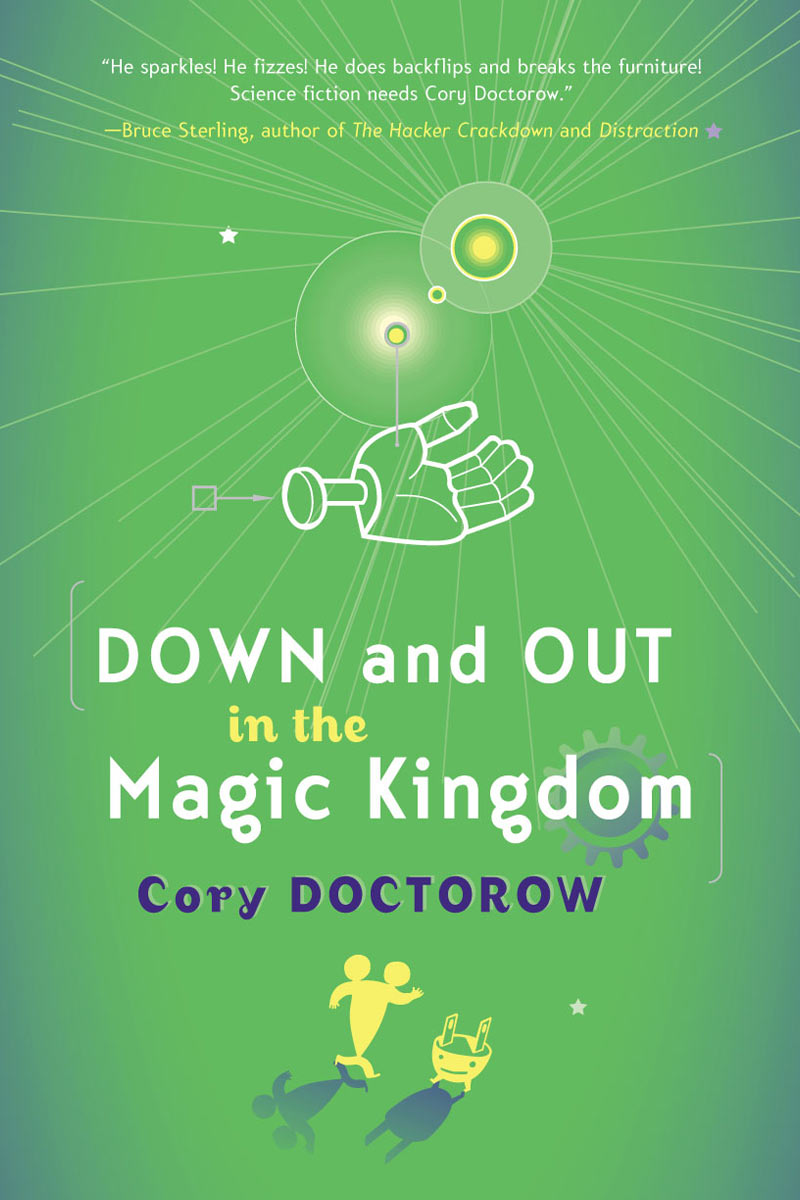I’ve done an interview with Creative Commons about Down and Out in the Magic Kingdom in which I go into some depth about the motivation for releasing the book online, gratis.
Well, in some ways, this novel is a parable about Napster, and about the reputation economies that projects like Ringo, Firefly, Epinions and Amazon hint at. In a world where information is nonscarce, the problem isn’t finding generic information — it’s finding useful information. There’s an old chestnut in online science fiction fandom that the Internet “makes us all into slushreaders.” (“Slush” is the unsolicited prose that arrives at publishers’ offices — a “slushreader” wades through thousands of these paste-gems looking for the genuine article). This has always struck me as a pretty reactionary position.
Nearly every piece of information online has a human progenitor — a person who thought it was useful or important or interesting enough to post. Those people have friends whom they trust, and those friends have trusted friends, and so on. Theoretically, if you use your social network to explore the Web, you can make educated guesses about the relative interestingness of every bit of info online to you. In practice, this kind of social exploration is very labor-intensive and even computationally intensive, but there’s a lot of technology on the horizon that hints at this…
Scarcity is, objectively, worse than plenty. When you’ve got lots of some useful object, you’re richer than when you have less of it. When there’s more than enough to go around, the economic value tends to plummet, but the utility is just as high. Think of oxygen: on the Earth’s surface, we’re well-supplied with breathable atmosphere. Aside from a few egregiously West-coast “oxygen bars,” it’s hard to imagine paying money for O2. But in Heinlein’s sf novels set on the moon, there’s a thriving trade in oxygen. In both situations, air is highly useful, but dirtsiders are richer in air than their loonie cousins.




























